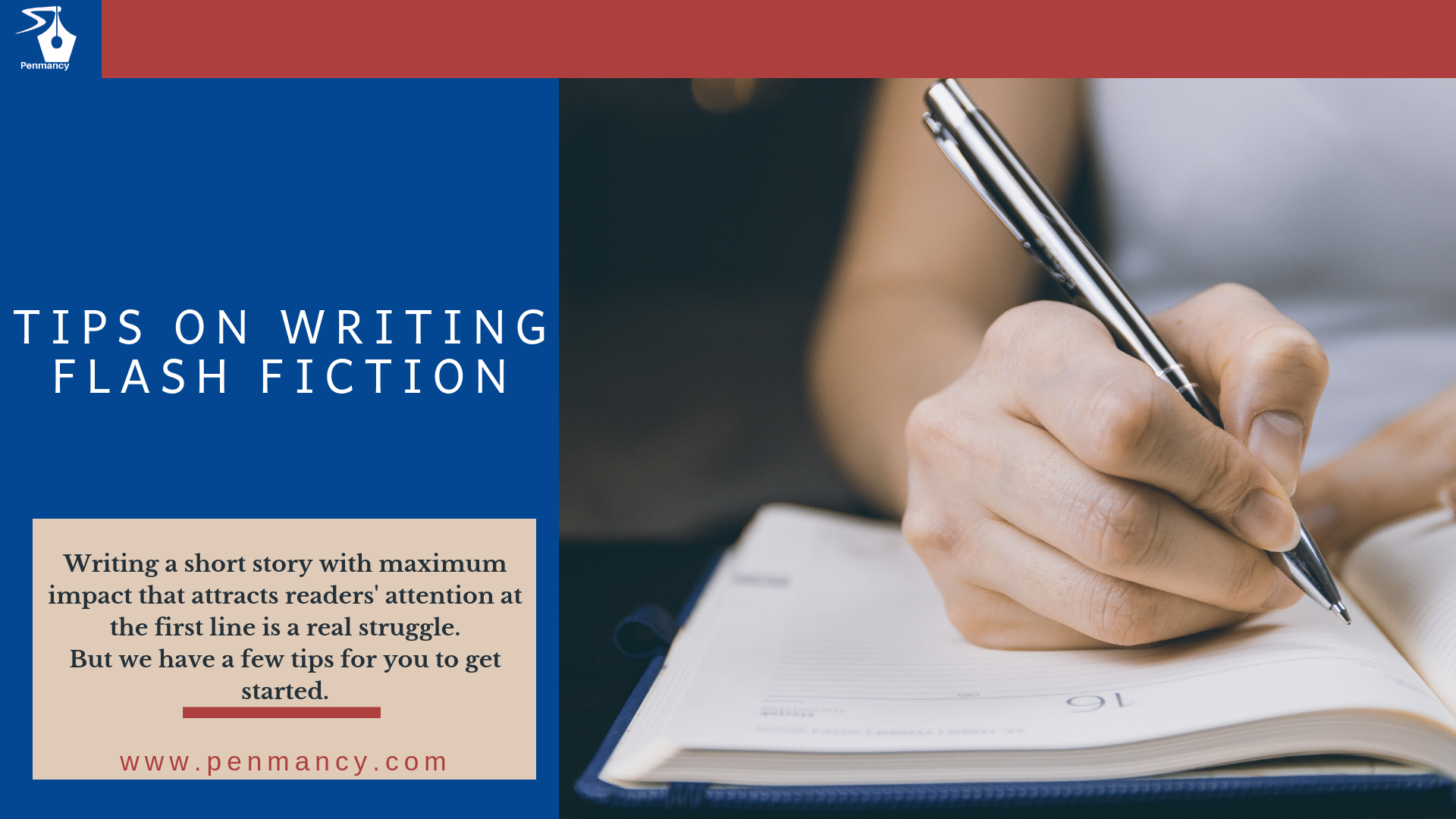
“Brevity is the soul of wit.”
(William Shakespeare, Hamlet).
Flash fiction is a fictional work known for its brevity. Like the name itself, stories under this category are over in a flash.
According to Chuck Sambuchino, writer/ contributor at writersdigest(dot)com, a flash fiction piece is a self-contained story with a beginning, middle, and end and contain 1,000 (generally capping out at 1500) words or less that can entertain, intrigue, and satisfy a reader. He further added what flash fiction is not–
- It’s not a part of a bigger story, or a synopsis for a novel, or a short story trimmed down to fit the 500 or 1,000-word maximum.
- It doesn’t cause brain-strain with convoluted point-of-views and time shifts.
- And it absolutely, unequivocally, downright does not require the reader to go back and read the story again to understand what the heck is going on.
Since many writers are doing it successfully, how do they do it? Here are a few tips to consider on how to condense a story into the fewest words possible with utmost impact:
1. No more than two characters. More than that and your story becomes erratic. Too many people doing too many actions.
2. Focus on one conflict. You don’t need a character who faces so many problems. Many problems require many words to solve them.
3. Remove information or descriptions that are not relevant to the story. Ask yourself whether the information you added to your story plays a crucial role in the characterization or to the plot. Don’t waste words on details that do not add meaning to the ideas that you want to convey. If it doesn’t provide strength to the whole story, leave it out. Remember, irrelevant information is welcome nowhere in creative writing.
“Good flash fiction is sharp, tight, and precise. It’s immediate, cuts to the chase. One unneeded word or wrong word, and the reader’s trust in the writer falters. The best flash fiction deals with big ideas, big emotions,”
~Michelle Ross, fiction editor, Atticus Review
4. Use adverbs (and not only those ending in -ly, but almost, rather, often, just, etc.) wisely and effectively. Although most writing articles advise to cut adverbs, it is not true all the time. Adverbs can make more specific, add information to, not only verbs but also adjectives and other adverbs. They are essential for every writer’s toolkit; they can do things that the other parts of speech cannot. But use them intentionally and with purpose. You don’t need to write “scream loudly” because, by definition, screaming is done loudly. Rather, replace adverbs with stronger verbs.
For example:
Good: Joe walked slowly towards Mary.
Better: Joe ambled towards Mary.
5. Omit redundant, empty, and imprecise phrases. They don’t add strength to your characterization or plot development. They appear to be important sounding phrases but add nothing to the meaning of a sentence. Such phrases quickly put a reader on guard that the writer is trading in puffery; worse, they put a reader to sleep.
“One of the most common mistakes I see in flash submissions,” says Ross, “is that the writing just isn’t tight. The sentences are flabby. The writer wastes words on details that are not important to the piece.”
If you describe your male character as having a scar on his face or anywhere on his body, make sure that the scar is relevant to the story. Otherwise, delete it.
Don’t over-describe your setting or how your character looks or feels. Even in flash fiction, action speaks louder than words and you do it without adding information that are unnecessary. Ask yourself, “If I delete this line, does the story still stand complete? If the answer is yes, then let it go.
6. Avoid using weak adjective, phrasal verbs, or clunky verb construction. They make your sentences flabby.
Examples:
- Big = 6-feet tall (Big is weak; it doesn’t give the readers an exact picture of the person.)
- Get = become, land, acquire, or retrieve (Befriend Teacher Thesaurus.)
- Go into = enter; or visit, discuss, or explain (Always look for a one-word equivalent.)
- Figure out = determine, guess, or decide
- Bad: I will go into detail about blogging during the lecture.
Better: I will explain blogging during the lecture. (precise, saves words)
Hope this snippet helped you a bit. Don’t forget to share this with your friends who you think could benefit from this too.
Until next time, keep writing!
